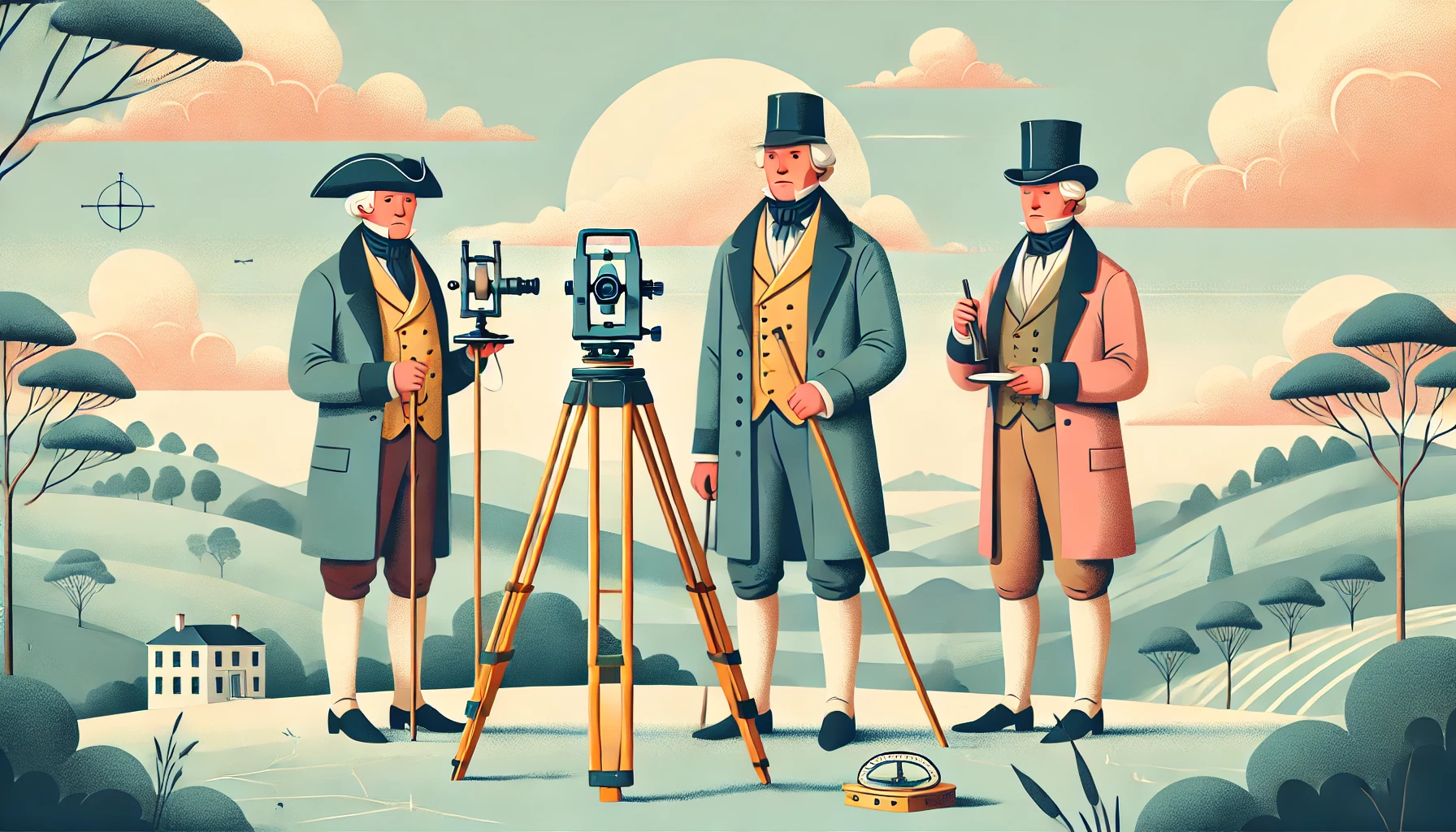
September 27, 2024
Land Surveying posts
George Washington, Thomas Jefferson, and Abraham Lincoln: American Surveying Pioneers
The field of surveying has a rich history in the United States, with influential figures such as George Washington, Thomas Jefferson, and Abraham Lincoln all having backgrounds in topographical measurements. In this article, we will explore the lives of these early surveyors in the country and their contributions to the field. From ancient techniques used by the Egyptians and Mesopotamians to modern advancements, surveying plays a vital role in depicting and understanding the earth’s surface.
George Washington: First President and Surveyor
When examining the historical roots of surveying in the United States, it becomes clear that the nation’s early leaders were significantly involved in the field of surveying. In the case of George Washington, the nation’s inaugural president, his foray into the world of land surveying laid the groundwork for his illustrious and multifaceted career. Prior to his presidency, Washington rose from a young surveyor to a leading military leader during the French and Indian War, a role that would later culminate in his exceptional leadership during the American Revolutionary War.
George Washington’s involvement in topography and surveying began in the mid-18th century when the United States was still in its infancy. Between 1747 and 1799, Washington conducted meticulous surveys on over 200 vast parcels of land. These surveys were essential not only for the delineation of property boundaries but also for the strategic expansion of the nation. The precision and dedication with which Washington approached his surveying work demonstrate his exemplary character and offer profound insight into the importance of accurate surveying in America’s early development.
Moreover, Washington’s immersion in the art and science of surveying gave him intimate knowledge of the nation’s varied and geographically intricate landscape. This knowledge, gained through practical experience, later proved to be a vital asset in his role as a visionary statesman. By seamlessly integrating his surveying expertise with his political acumen, George Washington left an indelible mark on the historical and physical fabric of the United States.
Thomas Jefferson: Third President and Surveyor
Like George Washington, Thomas Jefferson, the third president of the United States, was a luminary who actively contributed to the field of surveying before assuming the presidency. Jefferson’s skills were evident not only in his role as the author of the Declaration of Independence but also in his lesser-known endeavors as a pioneering surveyor. His early years were marked by an intellectual curiosity and a deep interest in topography and surveying.
Jefferson’s connection to the field of surveying is clear in his role in conducting extensive topographical surveys that helped delineate vast tracts of land. The precision with which Jefferson carried out these surveys underscores the indispensable nature of surveying in the expansion and organization of the United States. His contributions to the field, along with his visionary leadership, exemplify the combination of intellectual and practical ingenuity in American history.
Furthermore, Jefferson’s experiences as a surveyor provided him with a deep appreciation for the complex relationship between America’s physical terrain and the need for accurate topographical representations. This perspective, developed through his engagement with topographical measurements and cartography, influenced his approach to governance and policy, making him a visionary leader whose impact extended far beyond politics.
Over 6000 completed projects
In most of Florida, primarily in Charlotte, Sarasota, Lee, Polk, DeSoto and Hillsborough Counties.
